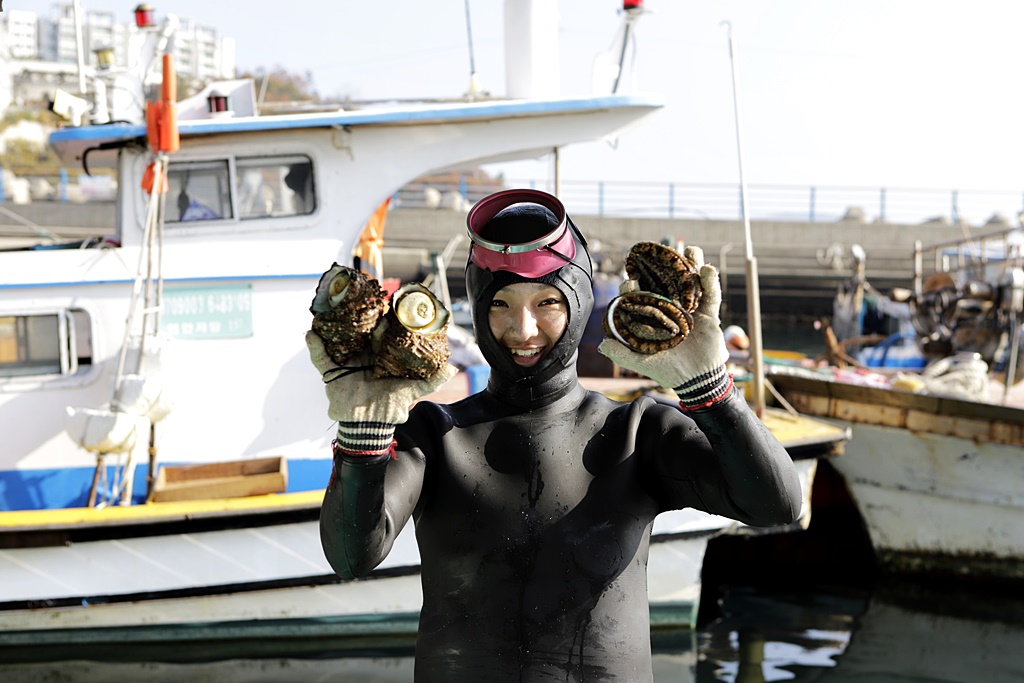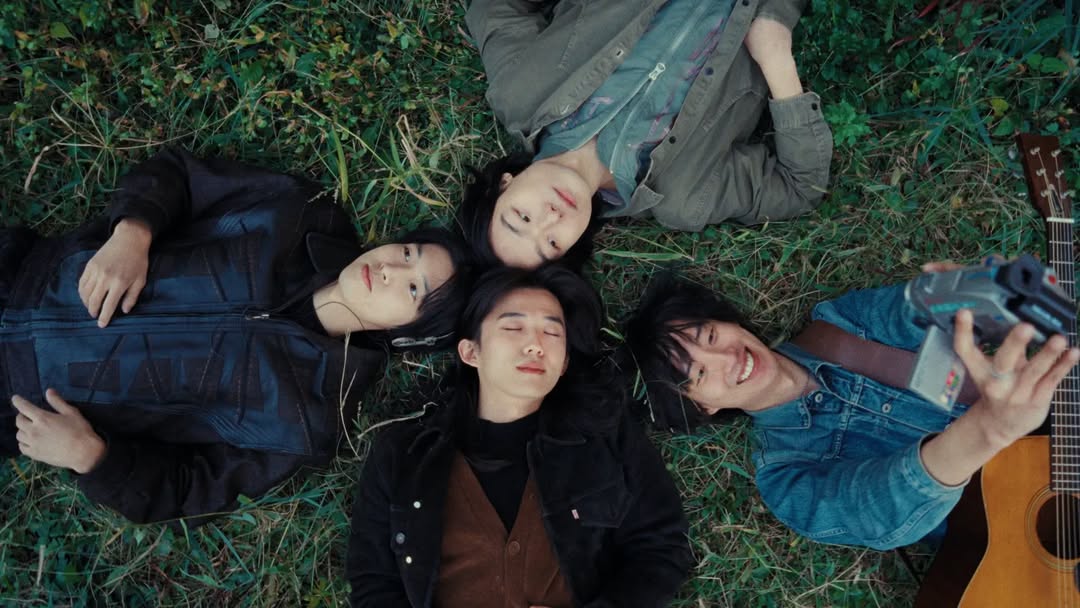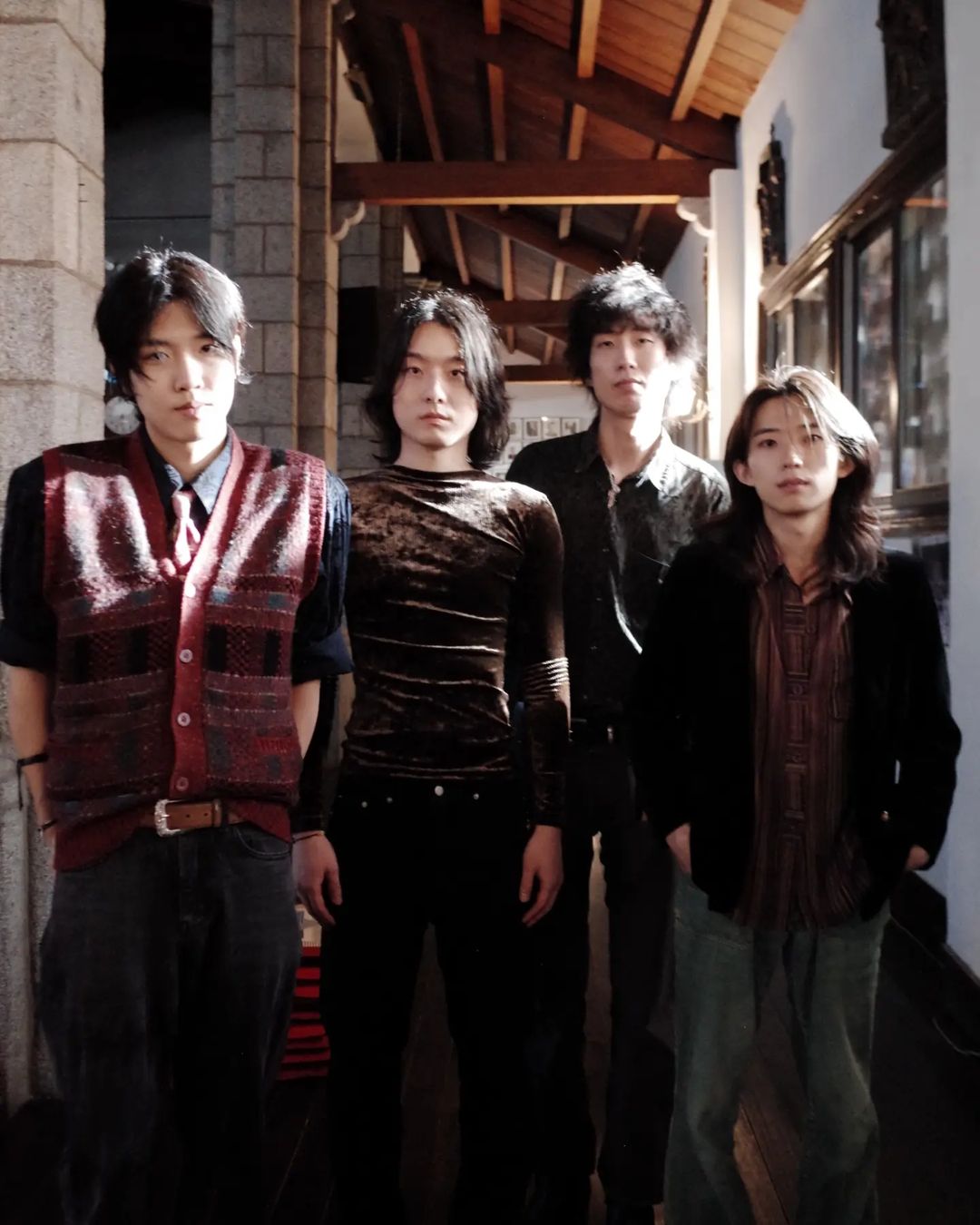Jin Sohee, a haenyeo from Jeju, continues the ancient tradition of divers, facing modern-day challenges while celebrating the feminine power that defines her profession and cultural heritage
Jin Sohee (진소희) , a dedicated haenyeo, appears in the documentary The Last Women of the Sea, produced by Malala Yousafzai and available on streaming service. While she is not one of the main protagonists, Sohee shares her experience as part of Jeju’s unique diving tradition, which faces the challenges of the modern world while preserving female strength and a deep connection to the sea.
In Jeju, among the crystal-clear waters, Sohee reflects on the delicate balance between keeping tradition alive and dealing with current difficulties. She is part of one of the oldest diving communities in the world, recognized by UNESCO as an Intangible Cultural Heritage of Humanity.
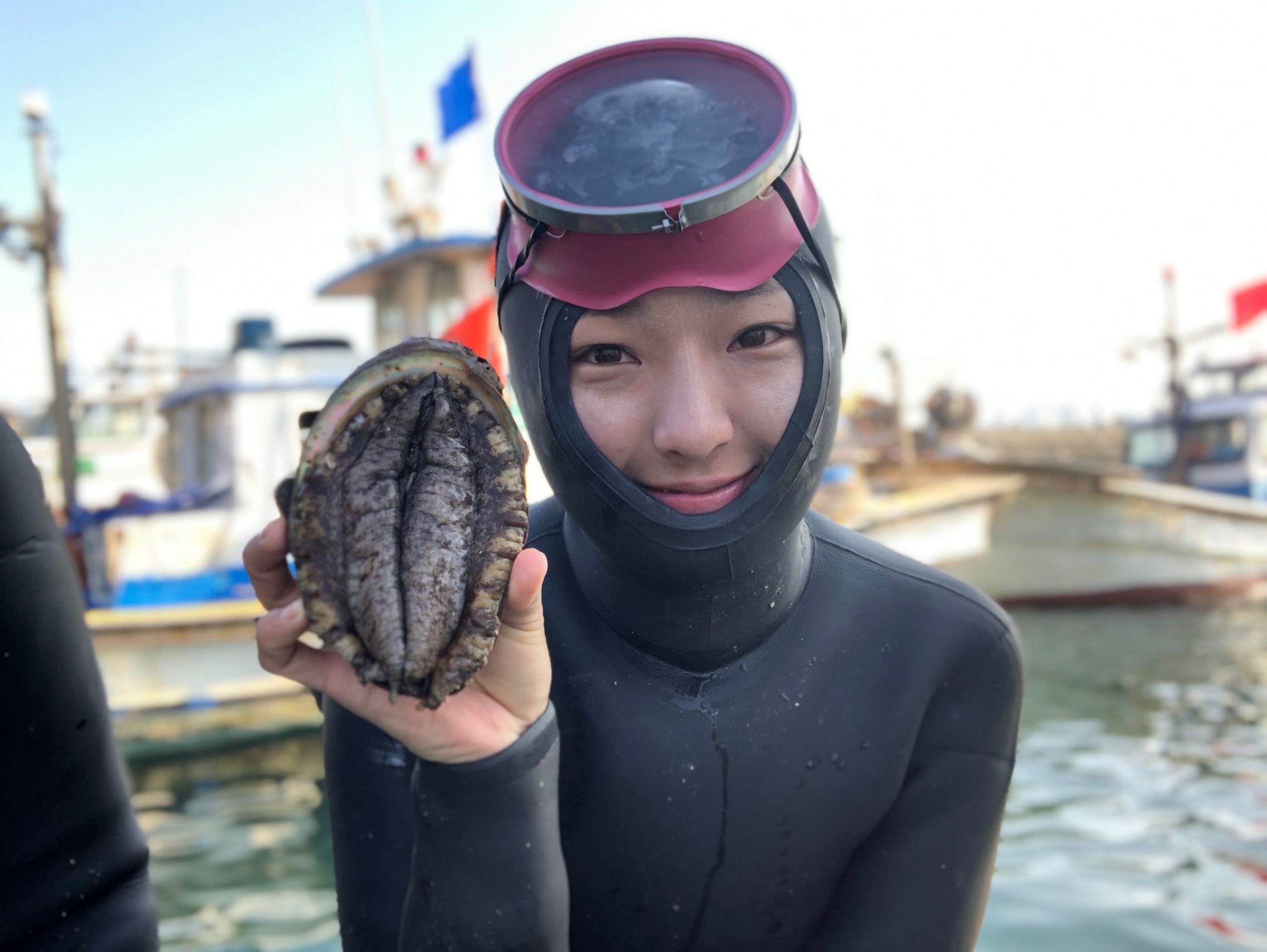
In this interview, Sohee proudly talks about her profession, the sacrifices involved in her life, and the role of haenyeo in preserving the marine environment. She also shares the challenges she faces daily, from the physical demands of diving to the dangers posed by climate change and pollution.
This conversation offers a deep dive into the life of a woman who, with dedication and courage, keeps a unique tradition alive, passing her legacy on to the next generations. Check it out:
Entretetizei: What does it mean to you to live as a haenyeo (diver) in a time when many traditions are disappearing?
Jin Sohee: Living as a haenyeo fills me with pride and value for my profession. I believe it is my responsibility to protect this tradition so that it doesn’t disappear. It’s important to share its significance with more people, spread its value, and ensure it stays alive.
E: What do you think about when you’re diving? Is it a moment of concentration, relaxation, or spiritual connection?
JS: When I’m diving, I need to concentrate because there’s not much time to find and collect seafood. The moment I return to the surface to breathe is one of relief and healing, contemplating the nature around me. When the dive is over, I feel great satisfaction for what I’ve accomplished.
E: How does the haenyeo tradition impact the lives of women in Jeju? Do you feel this profession empowers women?
JS: There’s a saying: “We earn in the underworld to use in the world of the living.” The haenyeo profession represents the strength of women, and it’s something we should be proud of. This tradition is based on sacrifice for the family. We need to change the perception that haenyeo take this path only because they have no other choice. They are true heroines of the sea.
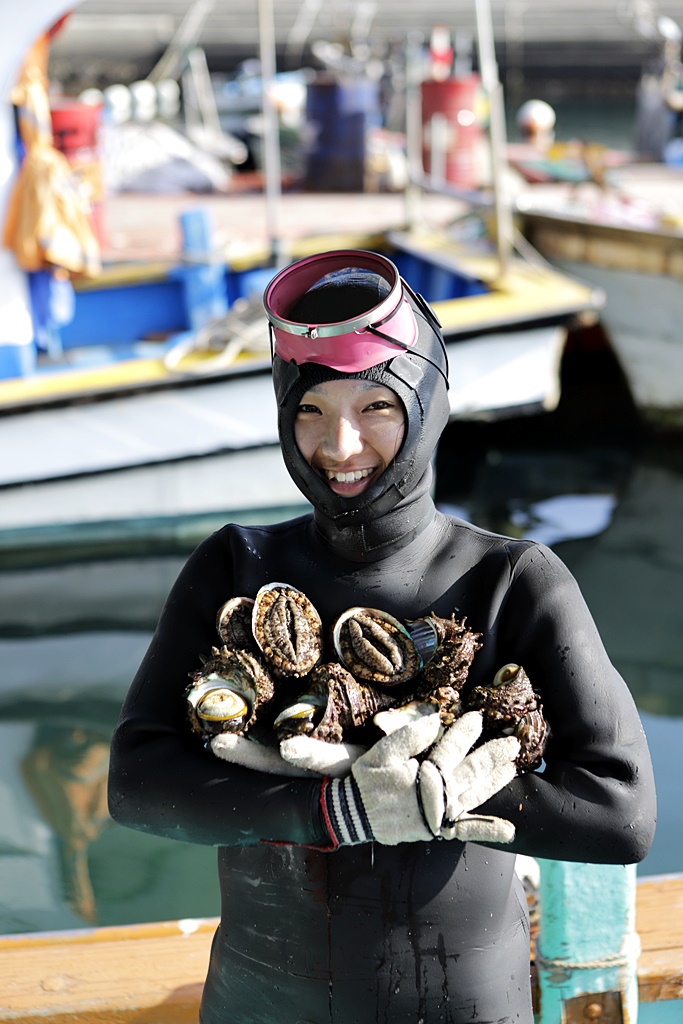
E: What was the biggest challenge you faced to become a haenyeo?
JS: The hardest part was learning to endure the pressure of the water. I had to master freediving techniques and equalization, and in the beginning, it was very painful to dive deeper. Over time, I adapted and now I’m fine.
E: Is there a minimum age to start training as a haenyeo? What is the learning process like for young people who want to follow this path?
JS: In the past, we learned from our mothers from childhood, even in elementary school, getting used to the sea. Today, for safety reasons, it’s better to start with basic swimming and begin diving in adulthood. It’s ideal to learn directly from other haenyeo because that includes both the techniques and the community culture.
E: Did UNESCO’s recognition of haenyeo as Intangible Cultural Heritage help preserve this tradition? How?
JS: Before, many people in Korea saw haenyeo as just people who did this work out of necessity or poverty. With UNESCO recognition, that view changed. Haenyeo now take pride in their profession, and more people began to admire them, attracting new interests and attention to this tradition.
E: How is the relationship between younger and older haenyeo? Is there a hierarchy or exchange of experiences?
JS: The older haenyeo look at the younger ones with affection, as if they’re seeing a younger version of themselves. They share their experiences and teach how to face the challenges of the sea. The younger haenyeo really value this learning, as it’s essential for handling difficult situations.
E: How is being a haenyeo today compared to the past?
JS: In the past, being a haenyeo was seen as humble, marked by sacrifices and a lack of pride. Today, in addition to diving work, we can get involved in other activities, like giving lectures, environmental preservation, cultural projects, and even business ventures. This allows us to promote the tradition in various ways.
E: How are climate change and pollution affecting the work of haenyeo?
JS: The rising sea temperature has melted many algae, and the mollusks that depend on them have died. The number of seafood has decreased, and weather conditions have worsened with typhoons, long periods of rain, and heatwaves. This has reduced our working days and forced us to dive deeper to collect seafood.
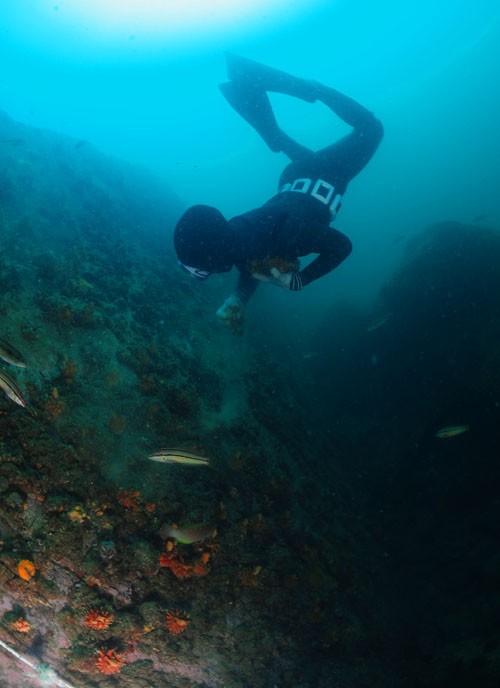
E: Are there traditional dishes made with the seafood collected by haenyeo? Are they connected to your work?
JS: Yes, there are many traditional dishes prepared with the seafood we collect. Some are so special that they even become part of ancestral ceremonies. The recipes vary from region to region.
E: Have you ever thought about quitting because of the difficulties or dangers?
JS: Yes, there have been scary moments, like when I almost got hit by a high-speed fishing boat. It was so frightening it made me cry. Also, there’s a lot of trash in the sea, and I’ve almost gotten caught in nets and ropes. These moments really make me feel the risks of the job.
E: How did you learn the unique signals and sounds of haenyeo while diving?
JS: There’s a sound called sumbisori. It naturally happens when we emerge and carefully exhale to protect our throat. That sound resembles a whistle.
E: Do you think the Korean government should provide more support to preserve haenyeo and attract young people to this profession?
JS: Yes, I think more support would be very important.
E: What is your favorite legend about haenyeo or the sea?
JS: There’s a story about a haenyeo who died while collecting a huge abalone. This legend reminds us to never be greedy in the sea.
E: How is the relationship between haenyeo and other sea professions, like fishermen?
JS: We have a cooperative relationship. We work together on marine cleanup projects and releasing young species into the sea. However, there are conflicts with illegal divers who collect seafood in large quantities.
E: What makes the haenyeo culture unique compared to other fishing or diving traditions?
JS: The difference is that we are women leading the activity. We have a strong community based on mutual help and solidarity, especially taking care of the most vulnerable.
E: What are the basic tools used by haenyeo? Do any of them have special meaning?
JS: We use a diving mask, fins, rubber suits, harpoons, and a buoy called tewak. The tewak is very special because it’s made with care and serves both to store the seafood and to signal our presence in the sea.
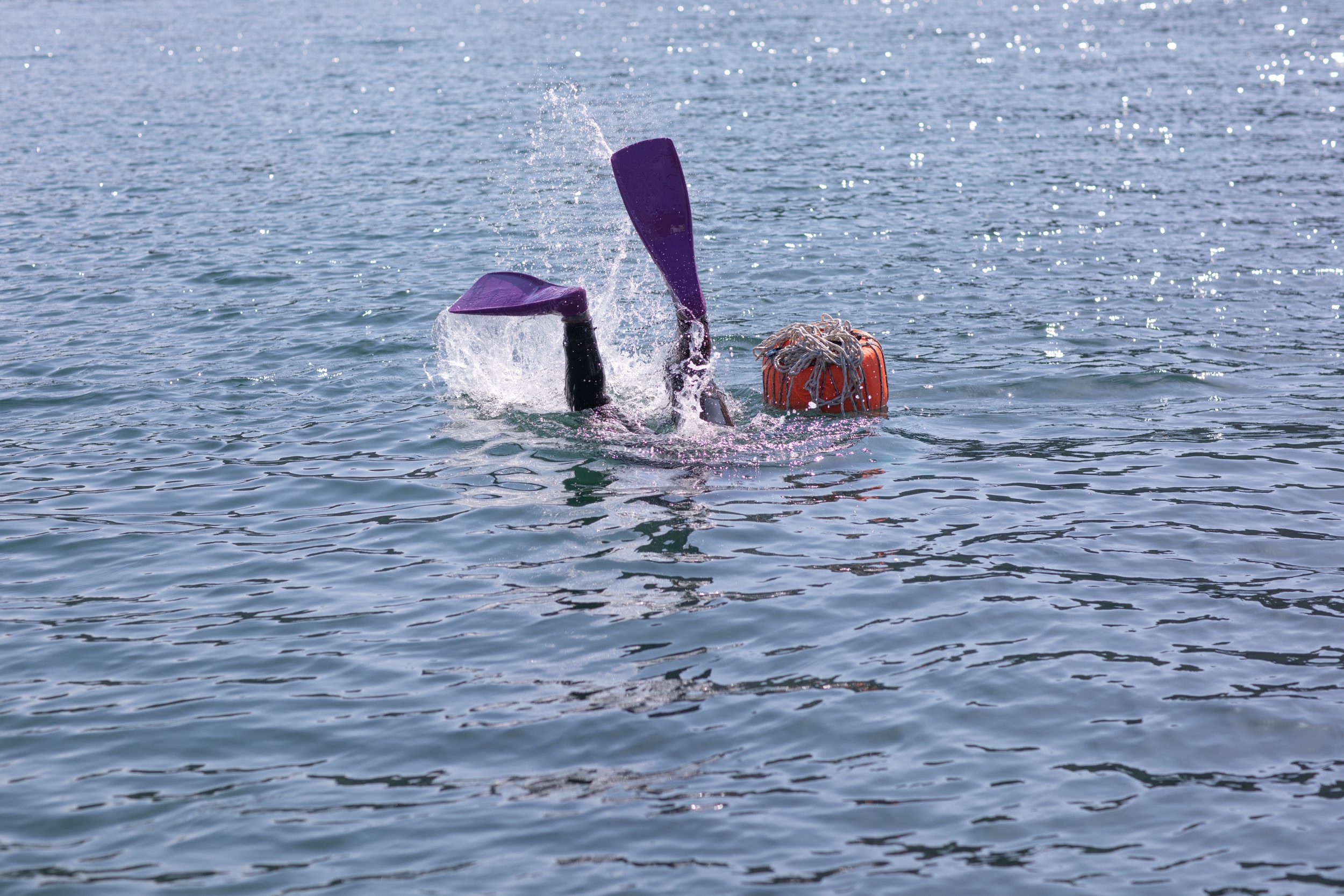
E: Do you have any special experiences at sea that marked your memory?
JS: When I’m tired or overwhelmed, the time in the sea is all mine. It’s as if the sea comforts and embraces me.
E: What are your expectations for the future of haenyeo?
JS: I hope we continue to be the guardians of the sea, protecting the marine ecosystem and promoting coexistence with the ocean.
E: How do you feel seeing foreigners and tourists interested in haenyeo culture? Does this help preserve the tradition, or are there concerns about commercialization?
JS: I feel very happy and proud when I see interest in our culture. It makes me feel like I made the right choice in becoming a haenyeo.
Did you already know about haenyeo? Tell us, and follow us on Entretetize’s social media — Facebook, Instagram, and X — for more news about Asian culture.
Read more: Haenyeo – As Sereias de Jeju
Texto revisado por Angela Maziero Santana

